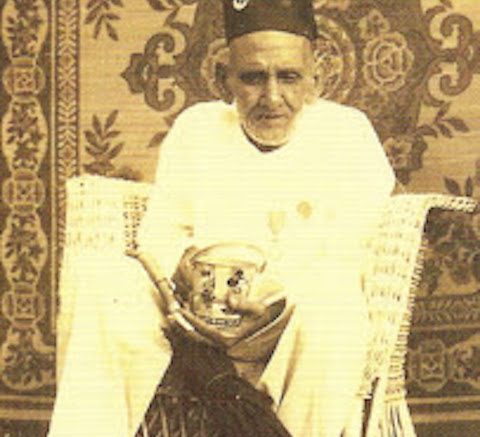Large-scale emigration of unskilled labourers from British India took place in the 19th century. These labourers, who were hardly making both ends meet and living in extreme poverty here, found work on much better wages in South America, Asia, Africa and the Caribbean (islands situated in the sea between the West Indies and Central and South America). They worked in mines and plantations and were able to help their families back home in India financially, in addition, of course, to meeting their own personal needs of food, clothing and shelter. They led a comparatively happy and contented life in the countries of their adoption.

Autobiography of Munshi Rahman Khan
Between 1832 and 1924, about five lakh Indians left for the Caribbean and started working there, mostly in Trinidad, Jamaica and Surinam. There is almost no written information about the lives and experiences of these indentured labourers, and the vicissitudes through which they passed, particularly in Surinam. The present translated autobiography by Munshi Rahman Khan, written originally in Hindi (Devnagari script), is indeed a very informative and valuable document throwing light on his and his co-workers’ and admirers’ lives in that country. Though a devout Muslim, he was fairly a good scholar of Hindi and the Ramayana, both of which he taught with great zest and devotion. His narration presents a vivid picture of the social intercourse and ethnic relations that existed in a colonial society among the indentured labourers in Surinam. Both subject matter and style of his narration is quite stirring and gripping, as he alternates prose with interesting verses, which shows that he was deeply religious soul.
Though Munshi Rahman Khan was a devout Muslim having unshakable faith in Allah, the Almighty and His Quran, there isn’t a tinge of any communal feeling in his heart or his deeds. He loves to teach Hindi and preach the Ramayana, something unusual for a Muslim. Urdu in his time was not associated with the Muslims only, and they freely and happily used Hindi. Rahman Khan was proud of his liberal education, which put him on the same pedestal as the upper caste educated Hindus. Munshiji was born in a Pathan family. Migrating from the region now known as Afghanistan, his ancestors further travelled into the interior of India and settled down in Bundelkhand in Utter Pradesh. His father, Mohammad Khan, finally made his home in the village of Bharkhari, where Rahman was born and educated. While remaining a staunch Pathan, he had integrated the Hindu pantheon with the Muslim prophet and other revered Muslim saints.

Munshi Rahman Khan
His narration of the history of Hindustan stops with his migration to Surinam in 1898 at the age of 24. He carries the Hindustan of his youth to Surinam with all its fond memories and associations. Clearly the moment he boards the ship in Calcutta to cross the kala pani, Rahman Khan disassociates himself from the history of the people who were so near and dear to him and from a country of which he was so proud. The title of Munshi Rahman Khan’s Autobiography in Hindi is Jeewan Prakash. It has four chapters (which he calls volumes) in addition to an introduction in which he gives the essential events of the History of Hindustan. In the first volume, he narrates his family history and lineage, while the second volume deals with his life and work in Surinam. The third volume continues with so many other interesting experiences. In the fourth volume, Munshiji tells the readers how ultimately he succeeded in building a large house in a place called Dijkveld in 1931, where he lived very comfortably in a joint family along with all his five sons. He also painfully describes the growing rift between the Hindus and the Muslims—the two communities that had lived in perfect harmony till 1929. But now, with the coming to the fore of the hardliners, particularly the Aryasamajists (as he alleges), relationships soured. The old peace, love and harmony evaporated. Naturally, therefore, he was now emotionally a broken man. This was the beginning of the degeneration of communal brotherhood both in India and Surinam that he saw with his own eyes.
The conclusion is that good and well intentioned people can create a heaven on this very planet, whereas the vile and vicious can easily convert it into a hell. Munshiji was indeed a noble soul.





Be the first to comment on "Gripping tale of Indian worker abroad in Suriname"